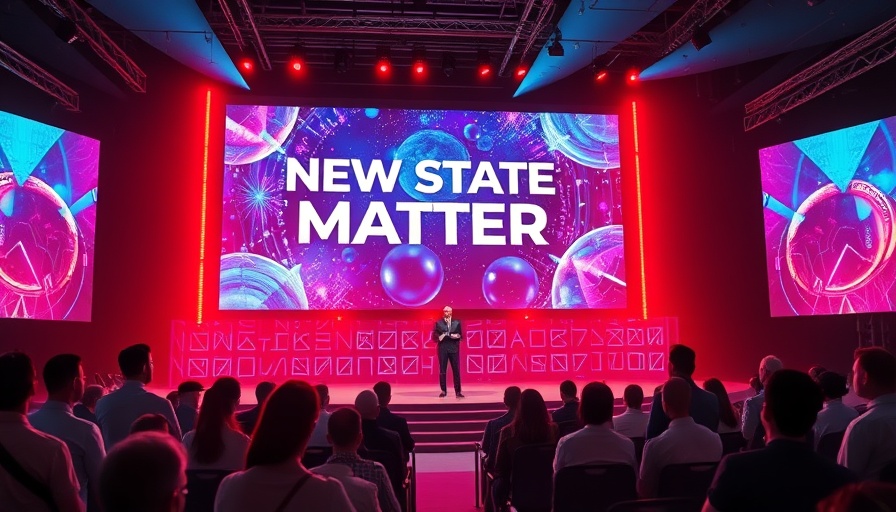
Google Vault Gemma: A Breakthrough in AI Privacy
In the rapidly evolving world of artificial intelligence, Google's latest innovation, Vault Gemma, represents a significant leap forward. This billion-parameter AI is not only the largest open model trained to date but also incorporates a groundbreaking approach to privacy. Traditionally, AI systems trained on vast amounts of data risked leaking sensitive information. Vault Gemma addresses this challenge head-on.
In 'Google VaultGemma: The World’s Most Powerful Private AI,' the discussion dives into revolutionary advancements in AI technology, focusing on how these changes impact privacy and performance, prompting us to analyze the potential consequences and opportunities for Michigan's tech landscape.
The model employs a technique known as differential privacy, adding controlled randomness during the training process to ensure that while the AI learns patterns, it does not retain specific details like phone numbers or emails. This ability positions Google as a leader in constructing AI that maximizes performance without compromising user privacy.
The New Era of Multilingual AI
While Google makes waves in privacy, the realm of multilingual AI also receives a much-needed boost. Johns Hopkins University has introduced MM BERT—a model that is revolutionizing how AI handles multiple languages. Unlike previous models that heavily favored English, MM BERT boasts proficiency in over 1,800 languages, ensuring that even lesser-known dialects are supported.
Trained on a staggering three trillion tokens, this model not only improves the efficiency of language tasks but outperforms existing systems in translation and comprehension exercises. For tech founders and professionals in Michigan, this development has implications for software development in diverse markets, allowing for better integration of AI into global applications.
Speech Recognition Gets a Fast Upgrade
Innovation does not stop at language models. California-based startup Twin Mind’s Ear3 offers a glimpse into the future of speech recognition. Priced at an unprecedented 23 cents per hour of transcription, it significantly undercuts competitors while providing a word error rate of just 5.26%. The implications of effective speech recognition extend beyond mere convenience; they can streamline operations for sectors like healthcare and legal services in the Metro Detroit area, where accuracy in transcription is paramount.
Ear3 employs advanced techniques to enhance its performance, handling speaker separation more effectively than its rivals. By making transcription more affordable and precise, Ear3 is positioned to disrupt existing business models related to transcription services, which can attract investment interest in Michigan’s burgeoning tech landscape.
Microsoft's Light-Based Computing Revolution
Shifting gears, Microsoft explores a more radical approach with its analog optical computer (AOC), which operates via beams of light instead of traditional electronic switches. This innovation could redefine computational efficiency, achieving performance tenfold that of current machinery for specific tasks.
As the AOC demonstrates promising results in areas like image classification and financial optimization, the potential for applications in various sectors is immense. For tech investors and startup founders in the Detroit area, keeping an eye on such developments is crucial for understanding the trends shaping the future of technology.
Implications for Michigan’s Tech Ecosystem
The revelations surrounding tier-one AI models have substantial implications for the emerging tech ecosystem in Michigan. As Detroit and its surrounding area position themselves as hotbeds for innovation, understanding the trends in AI, speech recognition, and computing is imperative for those in the industry.
With significant investment flowing into Detroit tech startups and incubators focusing on software development and AI, professionals must remain engaged in these advancements. The success of products like Vault Gemma and MM BERT could provide the necessary momentum to further elevate Michigan's standing as a tech innovation hub.
The Future of AI in Michigan
As we reflect on these advancements, it is essential for professionals and investors in Michigan's tech ecosystem to integrate these insights into their strategies. The convergence of AI developments not only presents opportunities for businesses but also poses challenges around compliance, ethics, and investment strategies.
Engagement with local educational institutions through coding bootcamps and tech events can ensure that the workforce is prepared for these changes, positioning Michigan as a leader in the adoption of these new technologies.
In summary, the developments showcased in Google's Vault Gemma, MM BERT, and Microsoft's light-driven computing hint at a bright future for AI and associated technologies in Michigan. For those in the know, this is an exciting time to be part of the technological landscape.
 Add Row
Add Row  Add
Add 



Write A Comment